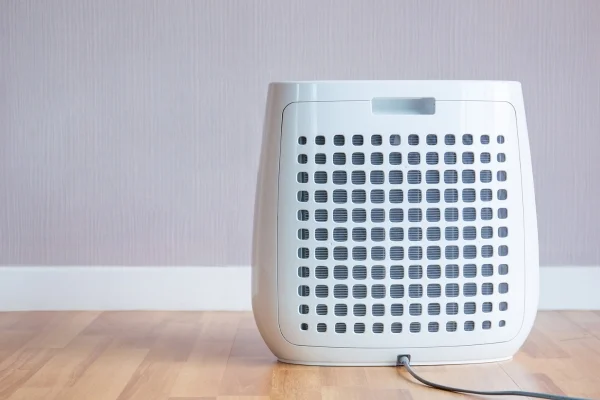Do indoor air purifiers work? This is a question that many people have, especially those who live in areas with high levels of air pollution.
Do you ever feel stuffy indoors, even though you know the air outside is fresh and clean? It’s not just you—indoor air can be up to five times more polluted than outdoor air, according to the Environmental Protection Agency (EPA).
One way to combat indoor air pollution is to use an air purifier. Air purifiers pull in polluted air and run it through a filter to trap the pollutants. The filtered air is then released back into the room, leaving you with cleaner, fresher air. But do air purifiers work? Keep reading to find out.
How Do Air Purifiers Work?
Air purifiers pull in polluted air and run it through a filter to trap the pollutants. The filtered air is then released back into the room, leaving you with cleaner, fresher air.
There are three main types of air purifiers: mechanical filters, activated carbon filters, and ozone generators.
Mechanical filters are the most common type of air purifier. They work by trapping pollutants on a filter, which can be made of fiberglass, pleated paper, or polyester. The filter must be regularly replaced every few months to maintain its effectiveness.
Activated carbon filters are also standard in air purifiers. These filters are made of charcoal that has been treated to make it more porous. This allows the charcoal to trap more pollutants, making it more effective than a mechanical filter. Activated carbon filters also need to be replaced regularly.
Ozone generators are a less common type of air purifier. They work by releasing ozone—a gas made up of three oxygen atoms—into the air. Ozone is a powerful oxidizer that can help remove air pollutants. However, ozone is also a pollutant, so ozone generators should be used cautiously.

The Pros and Cons of Air Purifiers
Before knowing that do indoor air purifiers work or not. Let’s have a look at some pros and cons of indoor air purifiers.
Pros:
- Air purifiers can remove pollen, dust, and other allergens from the air, which can be helpful for people who suffer from allergies or asthma.
- They can also remove smoke, pet dander, and other particles that trigger asthma attacks.
- Air purifiers can help reduce the spread of illnesses such as the flu by removing viruses and bacteria from the air.
- Some models of air purifiers are designed to remove harmful chemicals and gases from the air, which can improve the air quality in your home.
Cons:
- Air purifiers can be expensive, and the cost of replacement filters can add up over time.
- Some models of air purifiers can produce ozone, which can harm your health.
- Air purifiers can be noisy, and some models are significant.
- If you have pets, you must choose an air purifier that can remove pet dander from the air.
Read more about: Are Air Purifiers Good For Babies?
Do Indoor Air Purifiers Work?
When it comes to improving indoor air quality, you might be wondering if an air purifier is worth the investment. Air purifiers are designed to remove harmful airborne contaminants from your home, which can provide several benefits, including improved respiratory health.
Do air purifiers really work?
The answer is yes; air purifiers can be effective at improving the quality of your indoor air. However, it’s important to note that not all air purifiers are created equal. Various factors can affect an air purifier’s effectiveness, including the type of air purifier, the size of the unit, the specific contaminants you’re trying to remove, and the level of pollution in your home.
Read more about: Are Air Purifiers Good For Smokers?
The Bottom Line
The air quality indoors can be pretty bad. There are a lot of pollutants that can be found indoors, such as dust, mold, and pet dander. These pollutants can cause many health problems, such as allergies, asthma, and even cancer. That’s why many people use air purifiers to improve the air quality in their homes. But do indoor air purifiers work?
The answer is yes and no. Air purifiers can help remove some pollutants from the air, but they can’t remove all of them. And even if they could, the air quality would still be far from perfect. The best way to improve the air quality in your home is to ventilate it properly and use an air purifier as well.
Ventilation is important because it helps to remove the pollutants that are in the air. Air purifiers can also help remove some contaminants, but they can’t remove all of them. The best way to improve the air quality in your home is to ventilate it properly and use an air purifier as well.

